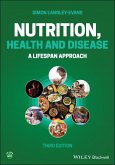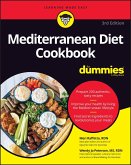Implementing the Mediterranean Diet
Implementing the Mediterranean Diet: Nutrition in Practice and Public Health situates this 'gold standard' of diets within the wider food environment by bridging the gap between the evidence-based health benefits of the Mediterranean diet and its implementation. The text explores the many approaches that can be used by health professionals to help consumers adopt this healthy eating pattern, as well as the barriers encountered with implementing this diet at home and in the wider environment. It also considers sustainable food and farming practices, and national food strategies.
A one-stop resource for food and health professionals, this seminal text demonstrates the full range of benefits that the Mediterranean diet can bring to society. This ground-breaking book:
_ Gives an in-depth review of the effectiveness of the Mediterranean diet in disease prevention and the management of chronic diseases
_ Contextualises the diet within the food environment, showing why the whole dietary pattern and minimizing the consumption of highly processed foods are both so important
_ Shows how to implement the Mediterranean diet, motivating and guiding consumers to make the transition
_ Addresses the practical and behavioural barriers to food choice in terms of taste, cost, variety, convenience and animal welfare concerns
Implementing the Mediterranean Diet is a must-have resource for advanced undergraduate and postgraduate students in the food sciences, and for healthcare professionals such as dietitians, nutritionists, GPs, and health workers, especially those working in non-Mediterranean, high-income countries.
Hinweis: Dieser Artikel kann nur an eine deutsche Lieferadresse ausgeliefert werden.
Implementing the Mediterranean Diet: Nutrition in Practice and Public Health situates this 'gold standard' of diets within the wider food environment by bridging the gap between the evidence-based health benefits of the Mediterranean diet and its implementation. The text explores the many approaches that can be used by health professionals to help consumers adopt this healthy eating pattern, as well as the barriers encountered with implementing this diet at home and in the wider environment. It also considers sustainable food and farming practices, and national food strategies.
A one-stop resource for food and health professionals, this seminal text demonstrates the full range of benefits that the Mediterranean diet can bring to society. This ground-breaking book:
_ Gives an in-depth review of the effectiveness of the Mediterranean diet in disease prevention and the management of chronic diseases
_ Contextualises the diet within the food environment, showing why the whole dietary pattern and minimizing the consumption of highly processed foods are both so important
_ Shows how to implement the Mediterranean diet, motivating and guiding consumers to make the transition
_ Addresses the practical and behavioural barriers to food choice in terms of taste, cost, variety, convenience and animal welfare concerns
Implementing the Mediterranean Diet is a must-have resource for advanced undergraduate and postgraduate students in the food sciences, and for healthcare professionals such as dietitians, nutritionists, GPs, and health workers, especially those working in non-Mediterranean, high-income countries.
Hinweis: Dieser Artikel kann nur an eine deutsche Lieferadresse ausgeliefert werden.
Most of us have heard about the Mediterranean diet and its supposed health benefits, and it conjures up images of roast lamb and vegetables, olives, olive oil and red wine. I wonder how many of us have read up in detail about what the scientific proof looks like and exactly what this "diet" involves. This book sets out to provide the reader with all the background information, scientific studies and what they prove, and provides insights and advice on how the Mediterranean diet can be implemented. How consumers can make this transition is also discussed.
The book is divided into two parts to distinguish between "why" the Mediterranean diet should be implemented and "how" to implement the diet and help motivate and guide consumers. The first seven chapters of Part 1 delve into the evidence base for the effectiveness of the diet in disease prevention and why we should minimise the consumption of highly processed foods. The nine chapters of Part 2 discuss the "how" - how to address practical and behavioural barriers to food choice, how to get the balance of the main foods and food groups in the diet right, and how to incorporate the Mediterranean diet into your lifestyle, and ends with a look at the benefits of the diet to society and the possible impact on sustainability of the food system.
I would recommend this book to anyone interested in nutrition and looking for an evidence-based overview of this particular diet.
- Professor Gunnar Sigge, Issue 41, Volume 12, Number 3, FST Magazine, South African Food Science and Technology
The book is divided into two parts to distinguish between "why" the Mediterranean diet should be implemented and "how" to implement the diet and help motivate and guide consumers. The first seven chapters of Part 1 delve into the evidence base for the effectiveness of the diet in disease prevention and why we should minimise the consumption of highly processed foods. The nine chapters of Part 2 discuss the "how" - how to address practical and behavioural barriers to food choice, how to get the balance of the main foods and food groups in the diet right, and how to incorporate the Mediterranean diet into your lifestyle, and ends with a look at the benefits of the diet to society and the possible impact on sustainability of the food system.
I would recommend this book to anyone interested in nutrition and looking for an evidence-based overview of this particular diet.
- Professor Gunnar Sigge, Issue 41, Volume 12, Number 3, FST Magazine, South African Food Science and Technology








